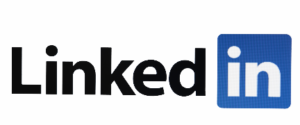
How many times have you felt you were PERFECT for that role, but still didn’t get it? You went over the interview in your mind a hundred times, noted how easily the conversation flowed, how they interviewer would nod enthusiastically when you described a certain experience or skill. They seemed excited when they said they would get back to you soon.
Then you got the email that you weren’t chosen.
Safe to say, I think we’ve all been there.
I’m a firm believer in if you didn’t get the job, something better will come along. Through the years, some of our clients have come back to us to tell us about interviews they nailed and were sure they got the job. But didn’t.
However, there are various reasons companies may choose a different route:
They decided to hire internally. As unfair as it sounds, they may have already had a front runner in mind but posted it anyway to see if there is someone better. Some companies HAVE to post externally due to contract constraints or affirmative action plans. Federal contractors or government agencies may have to post externally as well.
You were overqualified. Perhaps they think you won’t do tasks you deem “beneath you”. While it’s unfair for them to assume what you will or won’t do, it is a common concern. They may also fear that you will be bored at the job—especially if you’ve been on an impressive career track. Or, that after a while, you will leave and they’ll be back to square one.
You were underqualified. Thinking you’d be great in a role and actually having the experience to master the role are two different things. Read the job description thoroughly and make sure you have the experience to apply for the role.
They already had another candidate in mind. It’s possible they already found their choice but they had to have a certain amount of candidates to interview to fill their candidate roster. It might be company policy that X number of people need to be interviewed before a choice can be made.
Your online presence wasn’t professional or up-to-date. Hiring managers check your social media profiles to learn more about you. Turn on your privacy settings if you have personal pictures or information on there. Also, if you haven’t updated your LinkedIn profile in a while (or years!), now is the time to do it. Lack of LI presence can hurt you as well. Get it up to date.
You shared too much. I’ve talked with recruiters who said the candidate told them their life story—the good, bad, and ugly—and in the process turned off the recruiter. Keep the conversation on the company, their pain points, how you can help them, and that’s it. Don’t talk about your jerk boss, your sick parent, or a personal health problem. They really don’t want to or need to hear it. Keep it professional.
You didn’t know enough about the company. Be very prepared when you go to the interview. Research the company, its mission, what they do, what they sell, or what they are about. Research the role, figure out their pain points. Have questions ready to interview the interviewer, questions like, “What should I know about the role I am seeking? Do you have any other insight?” Be both knowledgeable and inquisitive.
Whatever the answer, you may never know. You might have done everything right and still did not get the job. It might have been narrowed down to you and someone else, but they went with the other person because they had more strategy experience.
Either way, you gave it your all.
About two months ago, an operations exec said to me, “You know, after three rounds of interviews, they finally told me I wasn’t chosen. So, I reached out to a few old colleagues that resulted in a round of interviews with a company I was never interested in and an industry I wasn’t very familiar with. But they liked me and saw what my vision was for their company–and hired me. It has been the best job I’ve ever had.”
If you are struggling with job search, hang tight. The right job will come along.








